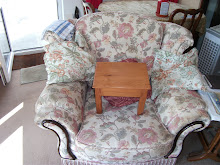To clarify as much as I can, I must try to explain just how the BBC (British Broadcasting Corporation) ran. It is what you would call Nationalised. Not that it is run on a political policy. It is, as far as it can be, run independently. I can honestly say, I have never noticed a particular way the programmes have swung to one or the other parties. Yes the Government does or did allocate money for the BBC to run. This included the World Service. We used to have a Radio Licence years ago and there was also a licence needed to have a radio in a car. That was done away with years ago and a T.V. licence incorporated the radio. Now every household that has a T.V must pay £145.50p each year. This has been frozen for 3 years. It does not matter if you only watch Sky, you still have to pay.
Back to the radio. Things would have progressed very slowly had it not been for the Pirate Radio Stations. Radio Caroline was the first. Well there were 2 One was based near the Isle of Man and the other off the coast of Essex. This was followed by Radio London, also known as Big L. Probably the best supported of all. Many other smaller Pirate Stations sprung up. This was in the early 1960s. With the Pirate Stations off shore beyond the 3 mile limit. That is what it was in those days. The Government could do nothing although they tried very hard to stop them.
Remember that the only music on records( that is what they were then) was Housewife's Choice on every weekday from 9.00am till 10.00am and Two Way Family Favourites. This was a forces based programme with the records being requested for Service Personnel in mainly Germany. I think it ran from 1.00pm to 2.00pm on a Sunday. That was it. So that when constant records were being played the BBC realised that something had to be done.
It was eventually decided that the new layout would be. Radio 1 would be on the medium wave. Radio 2 would use the light programme wavelength and Radio 3 would be on the Third Programme slot. It was also promised that there would also be local Radio Stations.
When Radio 1 went on air there was an immediate change of direction. Very little live music. If it was it would be a rock band or perhaps the Beatles would go to the studio and be interviewed and play a tune or so but in general it was all music on records. The same sort of thing happened on Radio 2. The only difference was that Radio 1 catered for the younger generation and Radio 2 catered for the more mature people. As with Radio 1, Radio 2 started to play lots and lots of records.
The upshot of this change was that a lot of DJs that worked on the Pirate Ships were offered jobs on Radio 1.
Local Radio seems to have it's audience but in general, I don't think they have been a great success. Some of them join other local stations at some parts of the day. I hardly ever listen to local radio at all.
At first all the stations were on analogue. now I think almost all are on VHF and of course the new digital, which unfortunately is still not available to all parts of the country.
Next time I will talk about the start of Television in the 1950s. More soon
Friday, 21 October 2011
Subscribe to:
Post Comments (Atom)

No comments:
Post a Comment